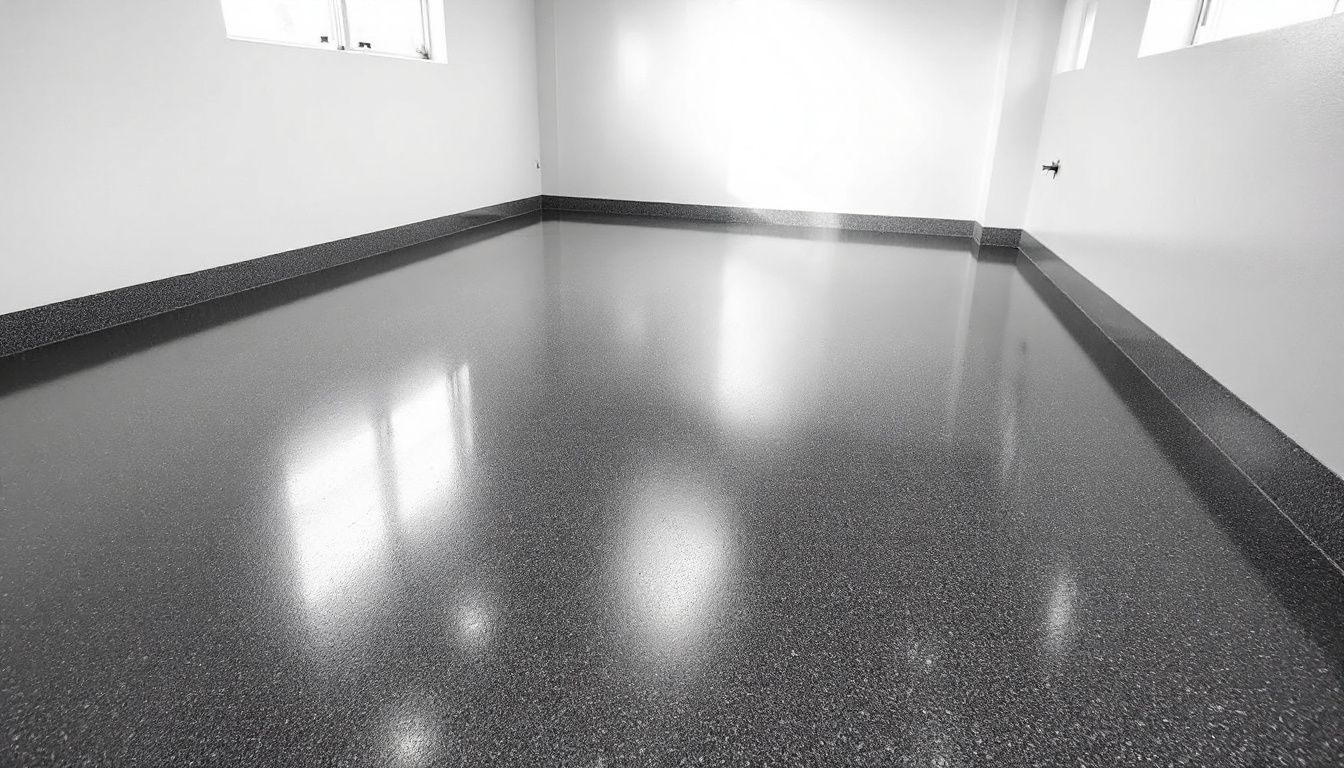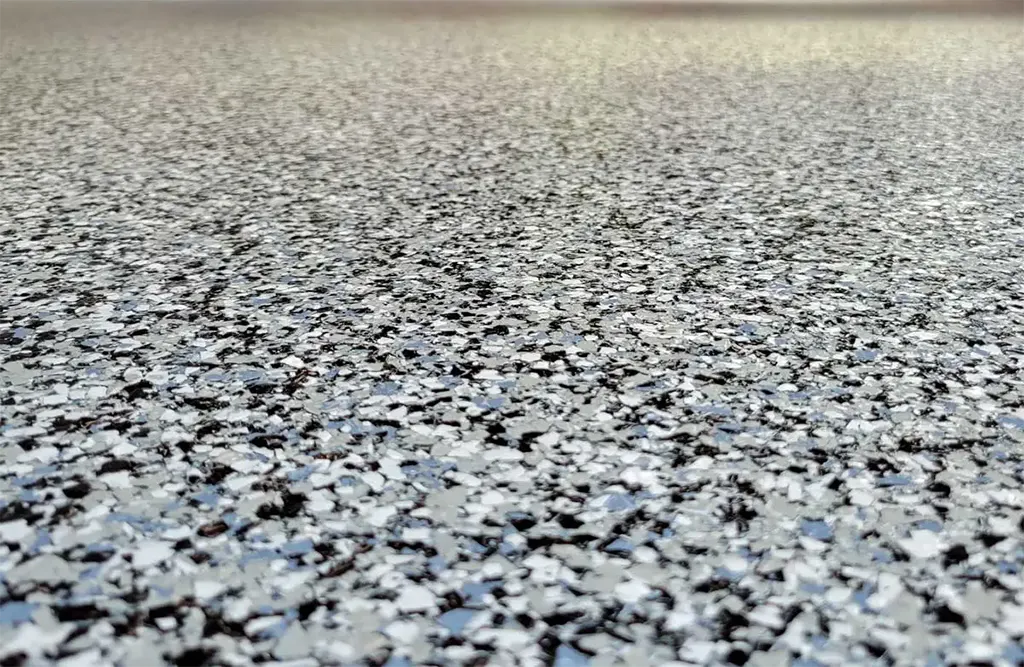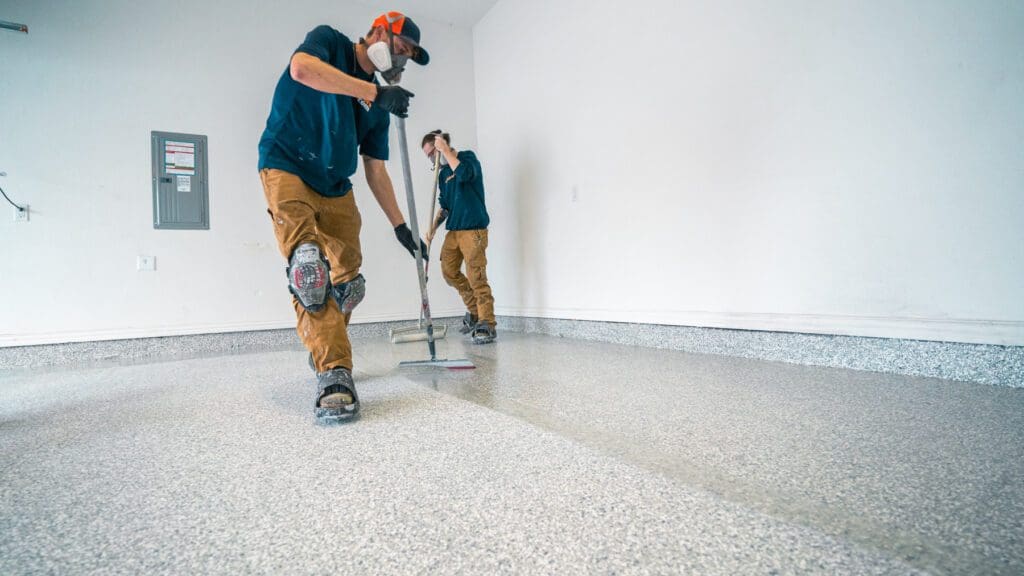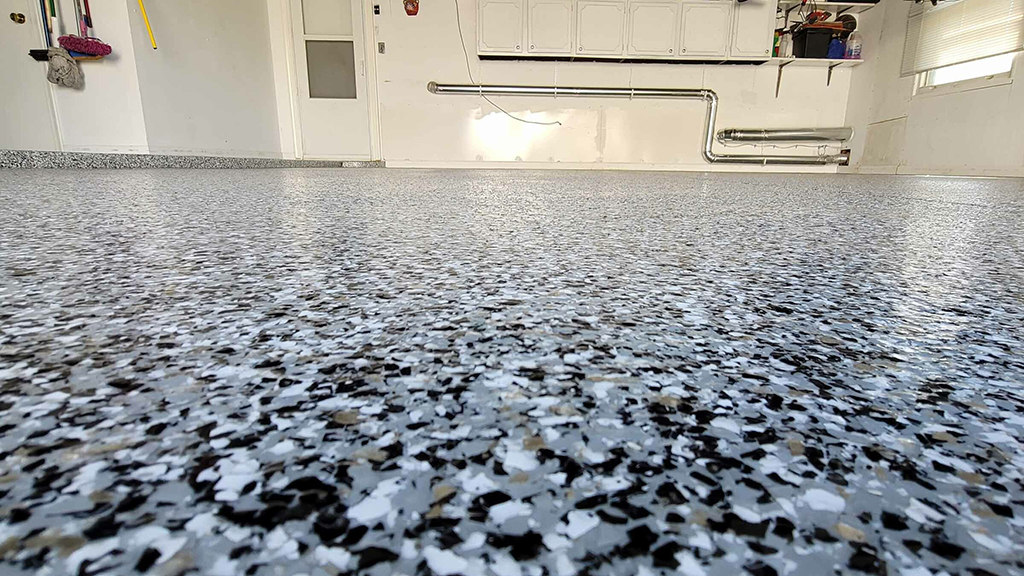If you live in Chicago, you know that basements can be both a blessing and a curse. On one hand, they add extra storage or living space. On the other, they’re prone to moisture, leaks, and even mold, thanks to the city’s unpredictable weather and heavy rains. If you’ve ever walked downstairs to find damp floors or musty odors, you’re not alone—many homeowners struggle to keep their basements dry and protected.
So, what’s the best way to waterproof and safeguard your basement without breaking the bank? Enter epoxy coatings—a game-changing solution that not only prevents moisture issues but also transforms your basement into a durable, easy-to-maintain, and visually appealing space.
In this guide, we’ll explore why epoxy coatings are the ultimate basement waterproofing solution for Chicago homes. You’ll learn how they work, the benefits they offer, and whether a DIY or professional installation is right for you. By the end, you’ll have all the information you need to make a smart, long-lasting investment in your home.
Why Basement Waterproofing is Essential in Chicago

If you’ve ever dealt with a damp or musty basement, you know how frustrating it can be. Chicago’s weather doesn’t make it any easier—between heavy spring rains, humid summers, and freezing winters, your basement is constantly battling moisture. And when water sneaks in, it doesn’t just sit there—it causes damage, invites mold, and weakens your home’s foundation over time. That’s why working with epoxy floor installers can be a game-changer for protecting your basement from long-term water damage.
The Unique Climate Challenges in Chicago
Chicago’s weather is all over the place. One day it’s sunny, the next it’s pouring rain, and in winter, temperatures drop so low that the ground freezes. This constant cycle of freezing and thawing can cause cracks in your basement floor and walls, allowing water to seep in. Combine that with the city’s naturally high water table, and you’ve got a recipe for a wet basement.
What Happens When Moisture Gets In?
Even a little bit of basement moisture can lead to big problems:
- Mold and Mildew Growth – Damp basements create the perfect environment for mold, which not only smells awful but can also trigger allergies and respiratory issues.
- Foundation Damage – Water can weaken the structure of your home over time, leading to costly foundation repairs.
- Unpleasant Odors and Poor Air Quality – A musty smell in your basement often means excess moisture is present, which can affect the air quality in your entire home.
Ignoring these issues won’t make them go away. The good news? Waterproofing with an epoxy coating can create a protective barrier that keeps moisture out, preventing damage before it starts. Up next, let’s dive into what epoxy coatings are and why they’re the best solution for your basement.
What is an Epoxy Coating?

If you’re looking for a way to keep your basement dry and protected, epoxy coatings might be the perfect solution. But what exactly is epoxy, and why is it such a game-changer for basement waterproofing? Let’s break it down in simple terms.
Epoxy is a strong, durable resin that, when mixed with a hardener, creates a tough, waterproof surface. It’s commonly used on concrete floors because it seals out moisture, resists stains, and adds a polished look. Once applied, the coating hardens into a smooth, non-porous surface that prevents water from seeping into your basement floor.
One of the biggest reasons homeowners struggle with basement moisture is that concrete is naturally porous—it absorbs water like a sponge. Over time, this trapped moisture can lead to cracks, mold, and foundation damage. Epoxy coatings solve this problem by forming a solid, impenetrable layer over the concrete, stopping water in its tracks.
Not all epoxy coatings are the same. Water-based epoxy is easier to apply and great for light moisture protection, while solvent-based epoxy is stronger and more resistant to chemicals but has a stronger odor during application. For maximum waterproofing and protection, 100% solid epoxy is the most durable option.
Each type has its own benefits, but all provide superior protection compared to traditional basement floor paints or sealers. Now that you know what epoxy coatings are, let’s take a closer look at why they’re the best choice for waterproofing your basement.
Benefits of Epoxy Coatings for Basements

When it comes to basement waterproofing, homeowners in Chicago have plenty of options. But few solutions offer the same combination of durability, protection, and style as an epoxy coating. If you’re wondering whether it’s worth the investment, here’s what makes epoxy stand out.
One of the biggest advantages of an epoxy coating is its ability to create a completely waterproof barrier. Unlike concrete, which absorbs moisture over time, epoxy forms a non-porous surface that prevents water from seeping in. This means no more worrying about damp floors, musty odors, or mold creeping up your walls.
Beyond waterproofing, epoxy is incredibly durable. It resists cracks, stains, and even chemical spills, making it one of the toughest flooring solutions available. Whether you use your basement for storage, a home gym, or extra living space, an epoxy-coated floor can handle heavy foot traffic without wearing down.
Another major benefit is that epoxy coatings help prevent mold and mildew growth. Since moisture can’t penetrate the surface, there’s no damp environment for mold to thrive. This not only protects your basement but also improves air quality in your entire home.
And let’s not forget aesthetics. Epoxy isn’t just practical—it can completely transform the look of your basement. Available in a variety of colors and finishes, from sleek glossy coatings to decorative metallics, epoxy allows you to customize your space to fit your style.
With its ability to waterproof, protect, and enhance your basement, epoxy is one of the best long-term investments you can make for your home. But how does it compare to other basement waterproofing methods? Let’s take a closer look.
Epoxy Coating vs. Other Basement Waterproofing Solutions

When it comes to keeping your basement dry, there are several options to choose from. Some homeowners rely on waterproof paints, sealers, or even more complex drainage systems like sump pumps and French drains. While these methods can help, they don’t provide the same level of protection as an epoxy coating. Let’s break down how epoxy compares to other basement waterproofing solutions.
Epoxy Coatings vs. Paint Sealers
Many homeowners start with waterproof paint or sealers because they seem like a quick and affordable fix. However, these coatings only provide surface-level protection and tend to wear off over time. Epoxy, on the other hand, forms a thick, durable layer that permanently bonds to the concrete, making it far more resistant to moisture and damage.
Epoxy Coatings vs. Polyurethane Coatings
Polyurethane is another common choice for basement waterproofing. It’s flexible and can expand and contract with temperature changes, but it’s not as tough as epoxy. Over time, polyurethane coatings can degrade and may require reapplication, whereas epoxy provides a long-lasting, highly durable surface that resists wear and tear.
Epoxy Coatings vs. Traditional Waterproofing Methods
Some homeowners install sump pumps, French drains, or exterior waterproofing membranes to manage water issues. While these methods are effective at redirecting water away from the foundation, they don’t actually protect the basement floor itself. Epoxy coatings provide an added layer of defense by sealing off the surface and preventing moisture from soaking in.
For the best results, many homeowners choose to combine epoxy coatings with other waterproofing measures. That way, you get both structural protection and a sealed, moisture-resistant floor. Up next, let’s walk through the process of applying an epoxy coating to your basement.
Also read: Benefits of Epoxy Flooring in Garage
Step-by-Step Guide to Applying Epoxy Coating in Your Basement

Applying an epoxy coating to your basement floor is one of the best ways to waterproof and protect it from damage. While the process requires some preparation, the results are well worth it. Whether you’re considering a DIY approach or hiring a professional, here’s what the process looks like.
Step 1: Preparing the Surface
For epoxy to bond properly, your basement floor needs to be clean and free of dust, oil, and debris. Start by thoroughly sweeping and vacuuming the floor. If there are any stains or grease spots, use a degreaser to remove them. Cracks and holes in the concrete should be filled with a patching compound, as an uneven surface can cause adhesion issues.
Step 2: Etching the Concrete
Epoxy won’t stick well to smooth concrete, so etching is an important step. This involves applying an acid solution or using a grinder to create a rough texture. Etching helps the epoxy soak into the concrete, ensuring a strong, long-lasting bond.
Step 3: Mixing and Applying the Epoxy
Once the surface is prepped, it’s time to mix the epoxy resin and hardener. Follow the manufacturer’s instructions carefully, as improper mixing can affect durability. Using a roller or squeegee, apply the first coat evenly across the floor. Some coatings require a second layer for added protection and thickness.
Step 4: Curing and Drying
Epoxy needs time to cure before it reaches full strength. Depending on the type of epoxy used, this process can take anywhere from 24 hours to a few days. Avoid walking on the floor too soon, and wait at least a week before placing heavy furniture or equipment on it.
By following these steps, you’ll create a durable, waterproof basement floor that resists moisture, stains, and everyday wear. But how much does it cost to epoxy a basement in Chicago? Let’s break it down next.
Cost of Epoxy Basement Coatings in Chicago

One of the biggest questions homeowners have when considering an epoxy coating for their basement is cost. While it’s an investment, epoxy flooring offers long-term value by protecting your basement from moisture, damage, and costly repairs down the road. So, how much should you expect to pay?
Factors That Affect the Cost
The total price of an epoxy basement coating depends on several factors, including:
- Basement Size – Larger basements require more materials and labor, increasing the overall cost.
- Condition of the Concrete – If your basement floor has cracks, stains, or uneven surfaces, additional prep work will be needed, which can add to the expense.
- Type of Epoxy Used – Water-based epoxy tends to be more affordable, while 100% solid epoxy (which is more durable) costs more.
- DIY vs. Professional Installation – A DIY epoxy kit can be cheaper upfront, but professional application ensures long-lasting results and may include warranties.
DIY vs. Professional Costs
For those looking to apply epoxy themselves, costs are generally lower, as you’re only paying for materials like epoxy kits, rollers, and prep supplies. However, mistakes in application can lead to peeling, bubbling, or an uneven finish, which may require redoing the entire floor.
Professional installation may cost more, but it includes expert surface preparation, proper application techniques, and high-quality materials. Professionals also ensure a smooth, durable, and long-lasting finish, often with warranties for added peace of mind.
Considering the waterproofing benefits and durability, epoxy coatings are a cost-effective solution that adds value to your home. But should you take on the project yourself or hire a professional? Let’s explore both options next.
DIY vs. Professional Epoxy Coating Installation

If you’re considering an epoxy coating for your basement, one of the biggest decisions you’ll need to make is whether to tackle the project yourself or hire a professional. Both options have their advantages, but choosing the right one depends on your budget, experience, and the level of durability you want.
When DIY is a Good Option
For homeowners who enjoy DIY projects and have some experience with home improvement, applying an epoxy coating can be a cost-effective solution. DIY kits are available at most home improvement stores and typically include the necessary materials.
A DIY epoxy project may be a good option if:
- Your basement floor is already in good condition with minimal cracks or damage.
- You’re willing to spend time on proper surface preparation, including cleaning and etching the concrete.
- You’re comfortable working with chemical mixtures and applying even coats.
However, DIY epoxy application comes with risks. If the surface isn’t prepped correctly, the epoxy might peel, bubble, or wear out much faster than expected.
Why Hiring a Professional is Worth It
If you want long-lasting, professional-quality results, hiring an expert is the best choice. Professionals have the tools, skills, and experience to ensure proper adhesion and a flawless finish. They also use high-quality, industrial-grade epoxy that lasts longer than store-bought kits.
A professional installation is recommended if:
- Your basement floor has cracks, moisture issues, or uneven surfaces that need expert repair.
- You want a seamless, high-durability finish without imperfections.
- You prefer a hassle-free experience with warranties for added peace of mind.
Whether you choose DIY or professional installation, epoxy coatings offer one of the best ways to waterproof and protect your basement. Next, let’s answer some of the most common questions homeowners have about epoxy flooring.
Protect Your Basement with a Durable Epoxy Coating
Your basement is more than just extra storage—it’s a vital part of your home that needs protection from moisture, mold, and long-term damage. With Chicago’s unpredictable weather, investing in a high-quality epoxy coating is one of the smartest ways to safeguard your space while adding durability and style.
We’ve explored why basement waterproofing is essential, how epoxy coatings work, and the many benefits they offer, from moisture resistance and durability to low maintenance and enhanced aesthetics. Compared to other waterproofing methods, epoxy provides a long-lasting, cost-effective solution that keeps your basement dry and looking great.
While DIY epoxy kits are an option for those with experience, hiring a professional ensures a flawless, long-lasting finish that won’t peel or wear down over time. Professionals use high-quality materials and expert techniques to ensure proper adhesion and a seamless result. If your basement has cracks, moisture issues, or uneven surfaces, professional installation is the best choice.
Now is the perfect time to take action. Whether you decide to tackle the project yourself or hire a specialist, an epoxy coating is an investment that will pay off for years to come. Don’t wait until water damage becomes a problem—contact a local epoxy flooring expert today to get a quote and start protecting your basement now!

